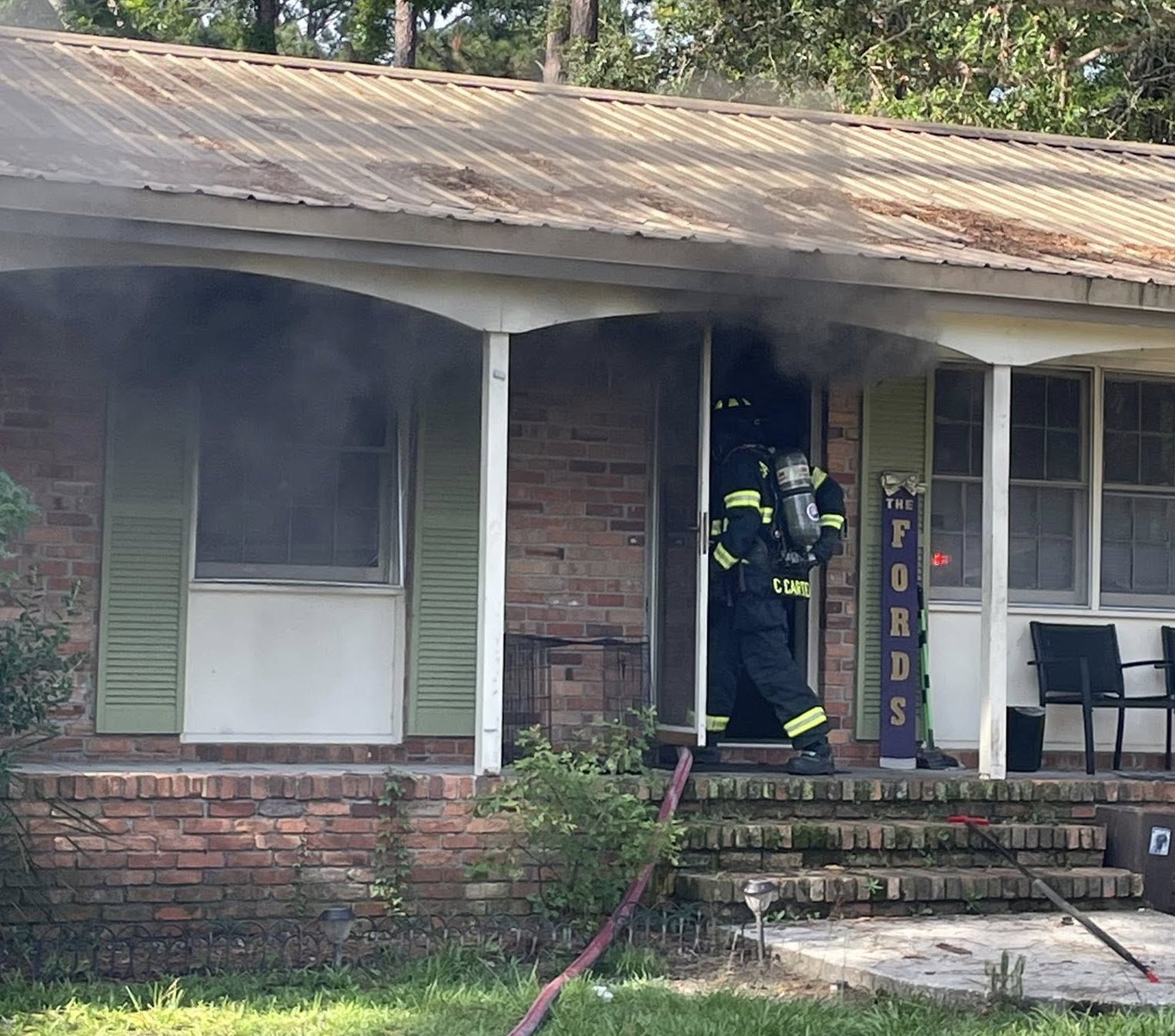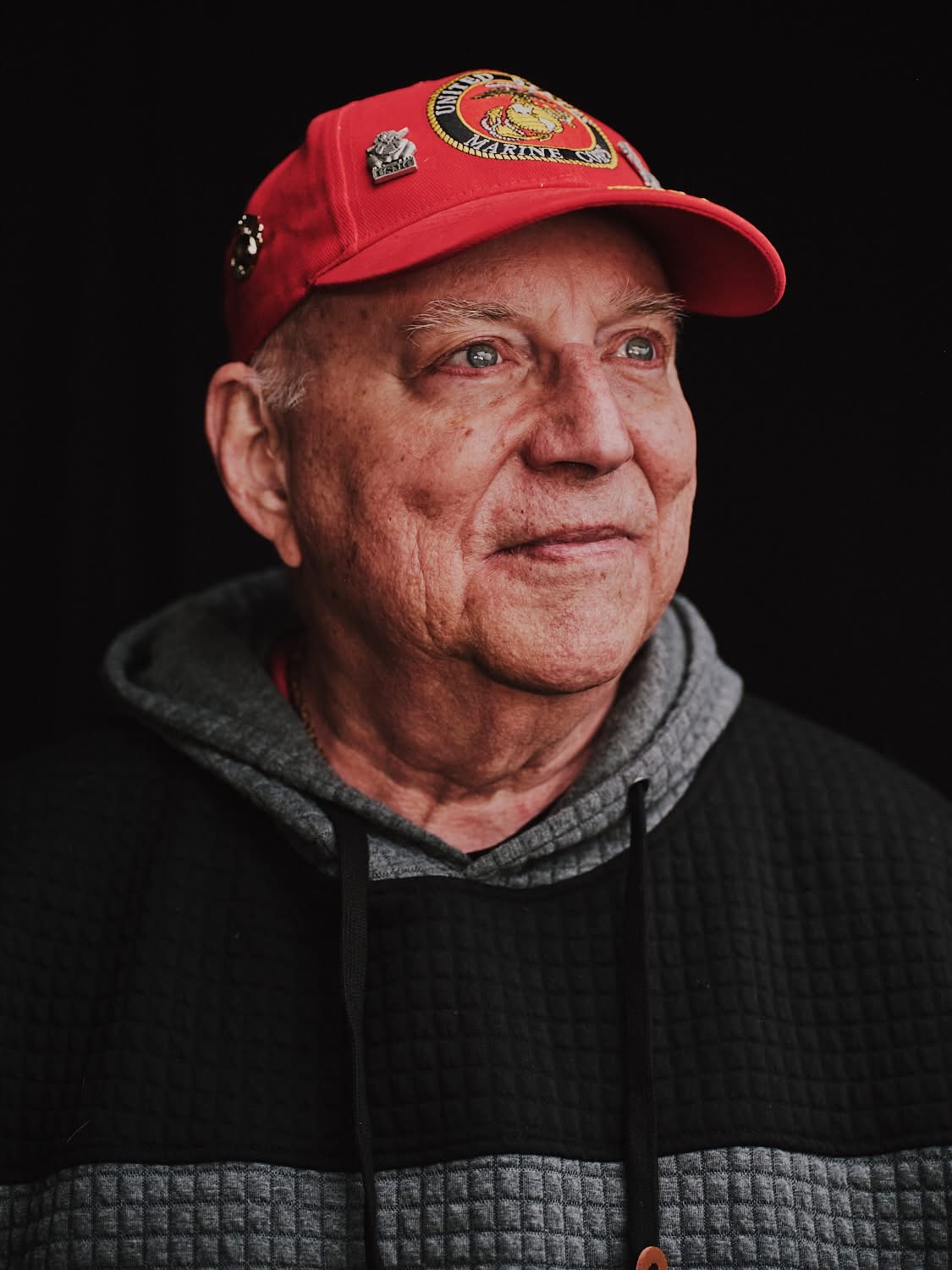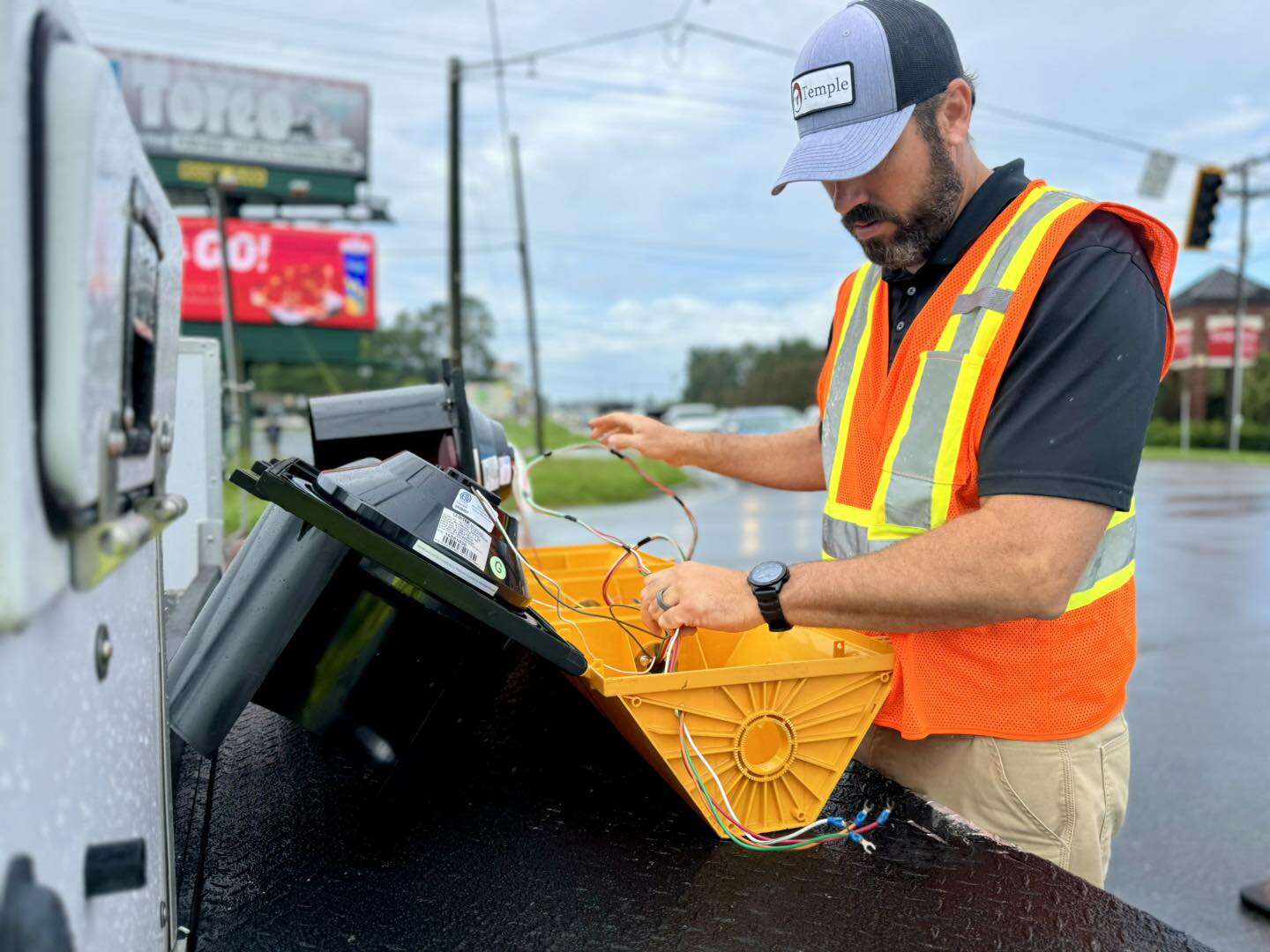Picking Up the Tab: Drinking laws, fees impact businesses, lives
Published 3:00 am Sunday, December 2, 2018

- Derrek Vaughn | The Valdosta Daily TimesMike Smith, owner of Smitty's Package Store said he mostly breaks even with Sunday alcohol sales except on big football game days.
VALDOSTA — One might think being able to sell alcohol on Sunday is great for liquor stores but Mike Smith, who has been in that business for 15 years, isn’t so sure.
He has operated liquor stores in Lowndes County since 2003 and owns Smitty’s Package Store in Valdosta and Lake Park.
Smith said he has seen Sunday sales become legal and gone through several other changes in the laws and regulations governing alcohol sales during that time.
When the City of Valdosta passed Sunday package sales back in 2011, it seemed like a great opportunity for liquor stores to make more money. After all, Sunday means people are off work and watching football, Smith said.
But Smith is considering going back to the way things were.
“By the time I pay workers and power bills, we break even on Sundays except for Super Bowl Sundays or during another good football game,” Smith said. “A lot of communities are regretting the Sunday sales.”
It was a push initiated by grocery store chains that wanted their business operations consistent here and elsewhere — that would mean being able to sell alcohol on Sundays.
When Valdosta officials started discussing Sunday package sales, liquor stores wanted to be part of the conversation.
In November 2011, Sunday sales passed, allowing businesses to sell packaged alcohol for consumption off-premises for the first time in Valdosta history. Nearly 15 years after Remerton passed its Sunday sales laws for poured drinks in restaurants, the first town in Lowndes County, and most of South Georgia, to sell any alcohol on Sundays.
Like everything else, Sunday alcohol sales came with a fee on businesses.
Expensive Business
The business of alcohol can be a costly venture, especially in the Bible Belt.
To run a liquor store in Valdosta, Smith said he has to pay fees any other business would and then some.
Taped to a wall of Smith’s business is a paper license that costs $3,075 annually — $1,075 for liquor, $500 for beer, $500 for wine and $1,000 for Sunday sales.
It would be almost $1,000 less to do business outside of Valdosta city limits, in Lowndes County. The fees are nearly the same except for Sunday sales, which is $250 for package stores outside of Valdosta city limits.
The fees are set up differently if the business requires consumption on premises, which would include restaurants and exclude package sales — Georgia doesn’t allow liquor stores, gas stations or grocery stores to let customers consume alcohol on property.
The city charges a consumption on premises business up to $4,550, which includes $500 for beer, $500 for wine, $1,075 for liquor and a one-time $2,475 consumption fee if all three categories of alcohol are consumed at the business.
Sunday sales apply to these types of businesses, too — $400 annually is required from restaurants and bars.
For Lowndes County, running a business where alcohol is consumed can cost up to $4,550. That’s not including the Sunday sales license, which is $250.
“Lowndes County also receives around $120,000 in license revenue from those permitted to sell alcohol for consumption on or off premises,” said Paige Dukes, county clerk and public information officer for Lowndes County.
Cities in the SunLight Project region, which includes Valdosta, Milledgeville, Moultrie and Thomasville, require alcohol fees.
Milledgeville requires a Sunday sales fee, too.
However, it only applies to restaurants at $400. Added to that is a $400 beer license, $400 wine license and $2,000 liquor license.
Package stores avoid the Sunday sales fee but the city still takes money from its pockets annually for a total of $3,825.
In 2017, Thomasville city government collected about $110,000 in alcoholic beverage license fees and about $530,000 in beer, wine, liquor and mixed drink excise taxes.
Thomasville does its licensing differently. Rather than beer and wine being the same price, as is it is for other SunLight regions, a beer consumption or package sales fee is $400, while the wine fee is $350.
For an additional $100, a business can have a combined package sales and consumption license, said Sheryl Sealy, Thomasville director of marketing and communications.
Unlike other SunLight Project cities, it’s cheaper to have a license for liquor pouring rather than liquor package sales in Thomasville. Liquor consumption will cost a business $2,000 compared to the $4,000 package stores have to pay.
In 2017, Thomas County government reaped $133,253 in beer and wine fees, and $136,342 in 2016.
Licenses are distributed at different price points for beer and wine but wine is the more expensive beverage for businesses to sell.
On-premise consumption licenses are $1,000 for wine — the most expensive wine license in the SunLight region — and $500 for beer, while package sales fees are $700 for wine and $300 for beer.
County government received $9,010 in beer and wine license fees in 2017, and $7,610 in 2016.
There are no fees for liquor because Thomas County does not allow distilled spirits sales, which includes any unincorporated part of the county.
As for Sunday sales, Thomasville doesn’t require a fee while Thomas County doesn’t allow it.
Then there’s Colquitt County where liquor stores are prohibited and alcohol of any kind is not sold on Sundays.
Because liquor isn’t allowed to be sold in package stores in unincorporated places of Colquitt County, there are obviously no fees associated with the type of alcohol.
For restaurants to serve wine or beer, each license costs $750. There is currently no fee associated with liquor being served at a consumption on premises business, but that could change Tuesday at the next Colquitt County Commission meeting.
Commissioners could approve a $1,500 license to pour liquor. Consumption businesses would pay $3,000 annually to serve alcohol, one of the cheapest total annual fees in the SunLight region.
Then and Now
Valdosta was late to allow Sunday drinking, and it was early to push for prohibition in the early 20th century.
Valdosta outlawed alcohol in 1907, more than 10 years before Prohibition made alcohol illegal throughout the United States.
“You had two different color ballots to vote with, and these men had to go to the booth while preachers and women watched them,” said Donald Davis of the Lowndes County Historical Society.
The history of alcohol in Valdosta moved at a different pace than the rest of the nation.
But, now, a brewery is coming to town, and Valdosta is intentionally making room for it through the change of a city ordinance.
“The new ordinance allows a microbrewery as defined in state law to manufacture, pour and sell a limited amount of malt beverage,” said Ashlyn Becton, City of Valdosta public information officer. “City officials changed the ordinance ahead of Georgia Beer opening.”
Georgia Beer Company, Valdosta’s soon-to-be-first brewery, expects to pay $1,500 to the city, said Christopher Jones, Georgia Beer’s director of business development.
Working with the Valdosta State University Small Business Development Center and the Valdosta-Lowndes County Development Authority, Jones said the organizations have been helpful and excited to make the brewery part of the community.
But the city needed to add microbreweries to the books first. City leaders made it official with a Sept. 6 change to the alcohol ordinance.
“It’s not that there were anti-brewery laws in place — there was just an absence of a license for breweries since there’s never been a need for one in the past,” Jones said. “We contacted the Georgia Craft Brewer’s Guild’s attorney, who looked at the existing Valdosta ordinances and wrote amendments which were consistent with state law, and we submitted those amendments to the city.”
Jones said the city attorney tweaked the amendment. The revised ordinance was brought before Valdosta City Council and approved.
Locals may even find a few cans of Georgia Beer’s brews in Valdosta liquor stores, such as Smitty’s, Mike Smith said.
“I think Georgia Beer is going to be good for the community,” Smith said. “We’ll be carrying their products once they get distribution in cans.”
Roughly one year after Gov. Nathan Deal signed a bill allowing Georgia communities to serve alcohol at 12:30 p.m. Sundays in 2011, Baldwin County residents approved the new rule at all establishments in the city and county.
Six years later, state legislators voted to move the Sunday start time up to 11 a.m., and Georgia communities may face a new round of votes to expand liquor sales by an hour and a half.
As the home of a four-year university and Georgia’s dedicated military junior college, Milledgeville has no shortage of Sunday brunch-goers and NFL fans gearing up for a day of action.
In light of the potential revenue to be made off this untapped market of mimosas and Bloody Marys, one Milledgeville city councilman has closely followed the Sunday brunch debate.
“Milledgeville was interested in (enacting the bill) during the general election that just took place; however, the county was not interested in putting it on the ballot at the same time,” said Walter Reynolds, Milledgeville District 4 alderman.
Religion has long been a factor for prohibiting or limiting Sunday alcohol sales in the South. Reynolds disagrees with one faith dictating what other people do and when they do it.
“For Milledgeville and Baldwin County, or any other part of the state or of the union for that matter, to restrict consumption on one particular day is to me a violation of the idea of separation of church and state,” Reynolds said. “This holds Sunday in a different light than any other day of the week, which is unfair to other religions who hold other days of the week as their sabbath.”
Reynolds said Sunday alcohol taxes are not currently a huge moneymaker for the city but a change to 11 a.m. could be a boon for the city.
Milledgeville bar and restaurant owners say they regularly turn away people asking for adult beverages on Sunday mornings. For the past few years, Cliff Charnes, owner of the Local Yolkal Cafe in Downtown Milledgeville, has been trying to get the city’s state and local representatives to enact the bill in Baldwin County.
“I was very disappointed in the fact that it didn’t make it on the ballot,” said Charnes, whose breakfast-based establishment does brisk business Sunday mornings. “Our business would benefit from this bill, without a doubt.”
The Local Yolkal Cafe could be in luck. Reynolds said changing Sunday times could be considered as a referendum item as early as March.
Changing alcohol laws usually requires a direct appeal by voters.
A front-page headline in the Aug. 5, 1975, edition of the Thomasville Times-Enterprise said voters overwhelmingly reversed the city’s 77-year-old dry status, legalizing liquor-by-the-bottle sales.
In a then-record voter turnout of 61.5 percent, 63.9 percent of voters favored a wet city, while 36.1 percent wanted it to remain booze-free.
Forty-three years later, Thomasville alcohol ordinances need changes, said Jay Flowers, a city council member.
“The ordinances will evolve over the next year or two,” Flowers said. “There are several things the council will consider to make it easier for our current license holders to provide their services to events outside their own premises.”
Colquitt County was dry until 2012 – only municipalities had sales – when Colquitt County Commission first allowed package sales of beer and wine in unincorporated areas.
More recently, voters approved a Nov. 6 referendum for the sale of liquor by the drink.
But officials say don’t expect mixed drinks immediately. Commissioners must first approve an ordinance, Colquitt County Attorney Lester Castellow said.
The approved referendum “authorizes the Board of Commissioners to regulate the sale of mixed drinks for consumption on premises,” said Castellow, who with the input of county Code Enforcement Officer Justin Cox is drafting an ordinance. “His (Cox’s) office is in charge of enforcing it.”
As is the case with establishments authorized to sell beer and wine for on-premises consumption, at least 65 percent of business revenues must come from food and/or lodging, Castellow said.
The ordinance will be similar to the one in Moultrie.
Colquitt County voters approved on-premises consumption of wine and beer in October 2015.
Since, only two establishments in the county have acquired licenses –Ashburn Hill Plantation and The Latin House. Establishments with a license to serve beer and wine on premises must meet the 65 percent threshold of sales of food and lodging.
Officials don’t expect liquor pour licensing to explode into a huge presence in the county either.
“It doesn’t mean every little corner in the county is going to open up a pool hall” to sell mixed drinks, Cox said.
Alcohol’s Southern Future
Because of religion and taxes, the presence of alcohol in the South may always be complicated.
Mike Smith, owner of Smitty’s, said he’s considering closing shop on Sundays in Valdosta but not at his Lake Park location, where Sunday sales do well.
Still, he said he misses the old routine.
“It really took away from Saturday and Monday business,” Smith said. “For a long time, people would buy up on Saturdays.”
He’s looking at more pressing matters at the state level that could affect his business.
Issues such as the possibility of liquor sales in grocery stores, which has grown in popularity in other states.
And he wishes the licensing fees could be lower. That’s always something on his mind.
But Smith said he gets why there is and should be so much regulation on alcohol. After all, it’s a controlled substance, he said.
“It is what it is,” Smith said.
Katelyn Umholtz is a reporter with the Valdosta Daily Times. She can be contacted at (229)244-3400 ext. 1256.





